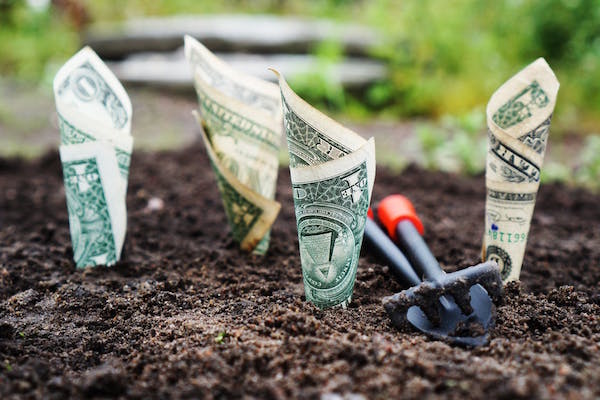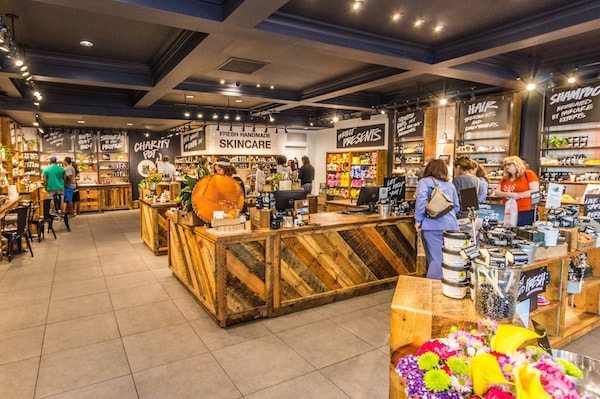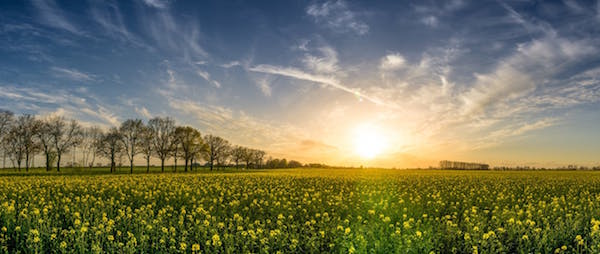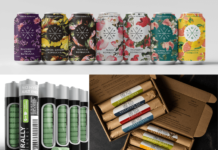
Lots of farms featured on the Edible-Alpha® podcast operate viable value-added businesses. Rustic Road Farm has a popular soup brand, for example, while B&E’s Trees makes maple syrup and energy pouches under the Embark Maple label. Doudlah Farms Organics, spotlighted in our most recent podcast, has a successful line of organic dry beans, seeds, and flours that’s rapidly expanding into new markets.
Many other farm entrepreneurs in FFI’s network are interested in launching a value-added business but haven’t yet taken the plunge. They like the idea of diversifying their business model, and they see real revenue potential in producing a finished good or service. They’re just not sure quite how to tackle such an endeavor or, more importantly, how to make money at it.
Well, that’s precisely why FFI created the Edible-Alpha® Learning Center: to help food and farm entrepreneurs figure this stuff out. Our training courses offer valuable guidance, of course, but so do the business-building stories shared on our podcast. Our featured entrepreneurs—many of them farmers who’ve branched into value-added—dish on what they know now, what they wish they’d known earlier, which strategies have worked, which strategies have tanked, and what has surprised them to discover along the way.
Doudlah Farms Organics has encountered plenty of surprises while launching and growing its CPG brand. Owner Mark Doudlah says there are several aspects of value-added agriculture that, had he known from the start, would’ve helped him set more reasonable expectations for the business. Many other ag entrepreneurs have shared similar things that surprised them about value-adding.
For many, the first discovery is simply that launching a value-added business is hard, or at least more challenging than they expected it to be. A big reason why it’s harder is they didn’t realize how many steps are involved in turning a crop into a finished product sold to consumers—or how much cost is attached to each one. Until they foray into CPG, many farmers have never needed to think about this before. But as they quickly find out, each step—cleaning, warehousing, co-packing, risk management, food safety assurance, branding, marketing, and more—carries a price tag that cuts into earnings.
Additionally, many farmers are surprised by how nuanced each sales channel is, and that each may require different resources and skillsets to manage. They may also find out that they’re not as capable at a CPG-related task as they thought they’d be and should therefore hire that task out. Or, conversely, they learn that they are more skilled at something than they ever knew.
Another major revelation? Building a profitable value-added business takes time. The CPG space is crazy-competitive, filled with legacy food companies and slick startups that excel at consumer targeting, marketing, and branding. A farmer-producer can absolutely breakthrough, but it rarely happens overnight—or even in the first year. It can take a few years to build brand awareness, generate customer loyalty, and do enough volume to turn a profit.
As Mark says in the podcast, starting a value-added business is not easy, but it can be incredibly rewarding. And with the right guidance—and a solid business plan—it can ultimately be profitable too.

Mark Doudlah was a fifth-generation conventional farmer until a family health crisis inspired his transition to organic and regenerative practices. Several years later, Doudlah Farms Organics is a thriving diversified agricultural business committed to regenerating the soil and water and producing safe, healthy, organic food. Mark shares the evolution of his business, including growing a value-added consumer brand.
And now, our roundup of the best food and beverage finance news, events and resources from around the web…

Business Model Insights
- The Almond Project: Brands, farmers work together for sustainability (New Hope Network)
- Learn how this unique business model is incentivizing and assisting almond farmers’ adoption of regenerative practices.
- Why Coaching Frontline Managers Is a Must in the Food Industry (The Food Institute)
- Natural products brands must prioritize diversity to make it authentic (Nutrition Business Journal)

Raising Capital
- Minority and women entrepreneurs focus of General Mills investment (Food Business News)
- General Mills’ VC arm invested $15 million in two women- and minority-owned early-stage venture capital funds that expand financial opportunities for underrepresented food entrepreneurs.
- Farmland LP is Demonstrating How Converting Farmland to Organic Can be a Profitable and Very Beneficial Endeavor (Organic Insider)
- John Kempf on AEA’s Recent Fundraise and Why Relationships Are Critical to the Regenerative Ag Investment Opportunity (Raising Regenerative News)

CPG/National Brands
- 4 PR trends every natural brand should know about (New Hope Network)
- Print media been declining for years, triggered by a loss of readership and ad revenue. As such, PR trends and strategies have changed drastically.
- Brand awareness remains global marketers’ top priority, but mass reach isn’t what it used to be (Nielsen Insights)
- One year later: gauging the impact of Apple’s AppTrackingTransparency (The Drum)

Market Trends
- Impulse purchases evolve to meet new consumer demands, shopping habits post COVID (FoodNavigator-USA)
- After early-pandemic losses, impulse purchases are rebounding—but they look different now, as brands and retailers redefine the category to sync with reshaped consumer needs and lifestyles.
- Inflation may be hitting a ‘tipping point’ for consumers (Food Dive)
- Poll: Nearly One-Third of Consumers Consider the Environment at the Grocery Store (Food Manufacturing)

Farming and AgTech
- More regenerative farming may be a climate solution. But another climate solution is impeding its progress (The Counter)
- Farmers are giving up much-needed cropland to solar companies, but can the two work in tandem?
- US Farmland Increasingly Controlled by Foreign Investment (Civil Eats)
- Is Fake Meat a False Promise? New Report Exposes the Politics of Alternative Proteins (Food Tank)

Deals/M&A
- Carbon neutral milk brand attracts celebrity investors, picks up raft of new retail accounts (FoodNavigator-USA)
- Despite the rise of plant-based and other animal-free dairy, most Americans still drink cow’s milk, so Neutral Foods gives them more sustainable options.
- Patriot Pickle Acquires Farm Ridge Foods (Food Manufacturing)
- Second Nature Brands snapped up by private-equity firm CapVest (Just Food)

Industry Events
Virtual events:
- Edible-Alpha® MVP Series Workshop: Optimizing Management, Operations, Quality & Food Safety Development: 5/11
- Edible-Alpha® MVP Series Workshop: Key Legal Considerations and Managing Your Business Risk: 5/25
- Edible-Alpha® MVP Series Workshop: Developing a High-Performance Organization: 6/8
- Edible-Alpha® MVP Series Workshop: Financial & Accounting Processes: 7/8
- Rooted in Health: Investing at the Intersection of Regenerative Agriculture & Nutrition: 6/22–6/23
- WSJ Global Food Forum: 6/27–6/28 (hybrid event)
- IFT First: Annual Event and Expo: 7/10–7/13 (hybrid event)
- Food Finance Institute July Quarterly Trends Talk: 7/11
In-person events:
- Food and Beverage Wisconsin Spring Business Mixer: 5/5 in Milwaukee, WI
- Northwest Wisconsin Women in Conservation Spring Conservation Gathering: 5/6 in Amery, WI
- Grow Your Farm Business: Accessing New Markets Through Distribution: 5/9 in Atlanta, IL
- Food Safety Summit: 5/9–5/12 in Rosemont, IL
- Soil Health Academy School: Adaptive Grazing with Multiple Species: 5/17–5/19 in Uniontown, AL
- National Restaurant Association Show: 5/21–5/24 in Chicago, IL
- Sweets & Snacks Expo: 5/23–5/26 in Chicago, IL
- Soil Health Academy School: Grazing for Profit & Regeneration: 5/31–6/2 in Cimarron, NM
- International Dairy Deli Bakery Association Show: 6/5–6/6 in Atlanta, GA
- Sosland Publishing Purchasing Seminar: 6/5–6/7 in Kansas City, MO
- Soil Health Academy School: Transitional Regenerative Dairying: 6/7 in Waterloo, NY
- Soil Health Academy School: Transitional Regenerative Dairying: 6/9 in Loganton, PA
- World Pork Expo: 6/8–6/10 in Des Moines, IA
- Vegandale Festival Chicago: 6/11 in Chicago, IL
- Summer Fancy Food Show: 6/12–6/14 in New York, NY
- WSJ Global Food Forum: 6/27–6/28 in Chicago, IL
- IFT First: Annual Event and Expo: 7/10–7/13 in Chicago, IL
- Organic Produce Summit: 7/13–7/14 in Monterey, CA



